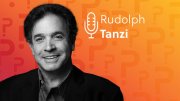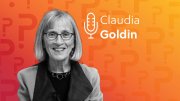Following the enthusiastic response to our first season of Ask a Harvard Professor, we’re delighted to bring you season two—focusing on critical issues of the day with faculty experts like Maya Sen (on the politicization of the U.S. court system), William C. Kirby (on China and the U.S.), David Cutler (on healthcare and medical costs), and Nicholas Burns (on the role of diplomacy in international relations). Listen to expert, nonpartisan insights from some of the University’s most distinguished scholars and teachers, as we Ask a Harvard Professor—coming in March!











